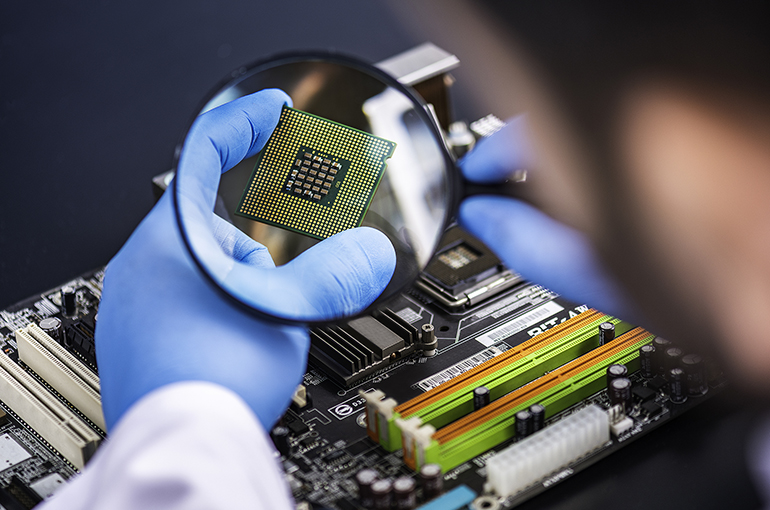Select Language:
China has initiated an anti-dumping investigation into certain semiconductor products originating from the United States, along with an anti-discrimination investigation into U.S. policies affecting the Chinese integrated circuit industry.
The anti-dumping review focuses on commodity interface and gate driver integrated circuit chips manufactured with 40-nanometer process technology or more advanced. The investigation, announced on September 13, is expected to conclude within a year, with a possible six-month extension under special circumstances.
The probe was launched after a regional semiconductor industry association in China provided preliminary evidence indicating that imports of these products from the U.S. increased by 37% last year compared to 2022, while their prices dropped by 52%, negatively impacting the local industry, according to a ministry spokesperson.
Officials noted that the U.S. government has recently expanded the definition of national security, misused export controls and jurisdictional authority, and deliberately obstructed China’s chip industry and artificial intelligence sector. These actions have been seen as violations of World Trade Organization rules and as harmful to the legitimate interests of Chinese companies.
On the same day, the Ministry of Commerce announced plans to investigate U.S. measures targeting China’s integrated circuit sector. This includes examining additional tariffs imposed since 2018 under Section 301, as well as actions taken since 2022 to restrict exports of chip products and manufacturing equipment to China, and measures limiting U.S. personnel’s participation in Chinese semiconductor projects.
The investigation, expected to last three months with potential extensions, will also scrutinize the U.S. Chips and Science Act and related regulations that restrict Chinese companies and individuals from engaging in certain trade, business, and investment activities.
Furthermore, the probe will evaluate recent U.S. warnings about the risks of using China’s advanced computing chips, such as Huawei’s Ascend series, and the potential implications of U.S. chips being used for training and deploying Chinese AI models.
China has stated it will respond appropriately based on the investigation’s findings and is prepared to take all necessary measures to safeguard the lawful rights and interests of its enterprises.
Meanwhile, Chinese and U.S. delegations have held talks in Madrid, Spain, focusing on economic and trade concerns such as U.S. unilateral tariffs, export control practices, and issues related to ByteDance’s short-video platform TikTok. These discussions are scheduled to continue until September 17.






